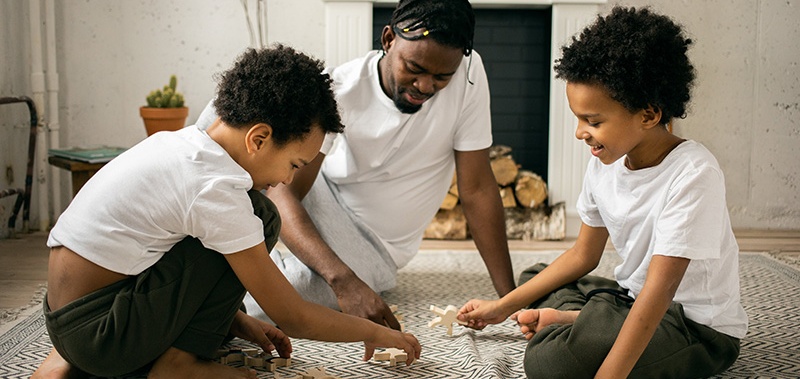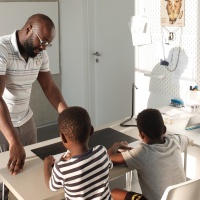Discipline is often associated with punishment, rules, and authority. However, discipline can also be seen as a process of teaching and learning that fosters positive behavior and academic success. This article, is to awaken people who are in direct contact or influence with youngsters that relationship is the new discipline, and to show how teachers can use the power of relationship to discipline students, the benefit of student-teacher relationship, and the importance of parent’s involvement in child’s discipline in school.
Relationship-based discipline is a student-centered approach to classroom management that depends on teacher-student collaboration to maintain a safe, positive learning environment. Relationship-based discipline, as its name suggests, relies on strong, mutually respectful, personal relationships to engage cooperation in the classroom. Teachers help students meet academic and behavioral expectations by emphasizing teacher empathy, unconditional positive regard, genuineness, encouragement, and trust. In such an environment, students behave not because they are afraid of punishment or because they seek a reward, but because they know they are valued members of the classroom community.
Teachers can use the power of relationship to discipline students in various ways. First, they can get to know their students as individuals, and understand their strengths, interests, needs, and challenges. Second, they can share and teach into classroom expectations, and develop classroom norms collaboratively with students. Third, they can model kind, supportive, and respectful behavior, and provide reminders and feedback to students. Fourth, they can use restorative practices to address conflicts and harm, and help students repair relationships and restore trust. Fifth, they can use student-centered instruction that allows students to have a voice and a choice in their learning, and that engages them in meaningful and relevant activities.
The benefit of student-teacher relationship is evident in various aspects of student outcomes. Research has shown that students who perceive their teachers as caring are more likely to give more effort to achieve academically, and pursue pro-social and social responsibility goals in the classroom. Moreover, students who have positive relationships with their teachers are more likely to have higher self-esteem, motivation, engagement, and achievement. Furthermore, students who experience relationship-based discipline are more likely to develop social and emotional skills, such as empathy, communication, problem-solving, and self-regulation.
The importance of a parent’s involvement in the child’s discipline in school cannot be overstated. Parents are the primary educators of their children, and they have a significant influence on the child’s behavior and attitude. Parents can support relationship-based discipline in school by establishing consistent and clear expectations and consequences at home, by communicating and collaborating with teachers, by modelling and reinforcing positive behavior and values, and by participating in school activities and events. Parents can also benefit from relationship-based discipline in school, as they can learn from teachers and other parents, and improve their own parenting skills and strategies,
10 Benefits of Positive Student-Teacher Relationships:
Academic Progress:
- Improved Engagement and Motivation: Students feel more connected to the material and the learning process when they have a strong relationship with their teacher. This leads to increased participation, curiosity, and a desire to learn more.
- Higher Academic Achievement: Studies show a direct correlation between positive teacher-student relationships and improved academic performance in all subjects. Students are more likely to put in extra effort, seek help when needed, and persevere through challenges.
- Enhanced Critical Thinking and Problem-Solving Skills: Strong relationships create a safe and supportive environment where students feel comfortable taking risks, asking questions, and exploring different solutions. This fosters critical thinking and problem-solving skills, crucial for success in all areas of life.
Social and Emotional Wellbeing:
- Increased Self-Esteem and Confidence: Positive interactions with teachers help students feel valued and respected, boosting their self-esteem and confidence. This empowers them to take on new challenges and believe in their ability to succeed.
- Improved Social-Emotional Skills: Students learn communication skills, empathy, and conflict resolution through positive interactions with their teachers. These skills are essential for healthy relationships and success in both academic and professional settings.
- Reduced Anxiety and Stress: Feeling supported by a teacher can significantly reduce student anxiety and stress levels. This creates a more positive learning environment and allows students to focus on their studies more effectively.
Long-Term Development:
- Development of Intrinsic Motivation: Positive relationships can help students shift from extrinsic motivation (grades, rewards) to intrinsic motivation (enjoyment of learning, personal growth). This intrinsic drive fuels lifelong learning and curiosity.
- Improved Lifelong Learning Skills: Students learn how to learn effectively, manage their time, and overcome challenges through positive interactions with their teachers. These skills are vital for success in higher education and future careers.
- Positive Role Models and Mentorship: Teachers can serve as positive role models and mentors for their students, guiding them through personal and academic challenges. This can have a lasting impact on students' lives and choices.
- Increased Civic Engagement and Social Responsibility: Strong relationships with teachers can foster a sense of belonging and community within the school. This can lead to increased civic engagement and a desire to contribute positively to society.
Remember, positive student-teacher relationships are not built overnight. They require commitment, respect, and effort from both teachers and students. However, the benefits are undeniable and can have a profound impact on students' academic success, social-emotional wellbeing, and future lives.
Relationship is the new discipline that can transform the way we teach and learn in school. By using the power of relationship, teachers can discipline students in a positive and supportive way and help them achieve academic and personal success. By building strong and trusting relationships with teachers, students can benefit from a caring and engaging learning environment and develop essential skills and competencies. By involving parents in child discipline in school, teachers can create a partnership that enhances the well-being and growth of both children and parents. Relationship is the new discipline that can create a culture of respect, responsibility, and resilience in school.
Credit: Photo by Monstera Production












Comments